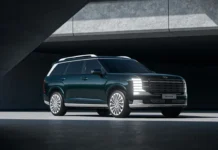
When you look across a car brand’s entire lineup, the oldest cars usually aren’t more than four years old. Most automakers update their models with predictable frequency, but one of the brands that bucked that trend was Dodge. As things stand in the year 2020, none of its models have undergone a radical overhaul on this side of the last decade. The current Charger, for example, has been around since 2011 (although it has gotten a facelift since then), while its older models have been kicking around even longer.
Now, Fiat Chrysler recently announced the Journey will finally be put out to pasture this year, along with the Grand Caravan. We suspected Dodge would drop its minivan after reports surfaced last year it would hand its crown over to the Chrysler Pacifica and, more crucially, the less expensive Voyager. As for the Journey, Dodge’s sole crossover has fallen well behind its competition in both powertrains and technology.
Ironically, both cars have been huge sellers for the brand, even though they’ve been around for more than a decade. At $19,985, the Journey is one of the least expensive three-row models on the market. In fact, until recently it’s been Dodge’s second best seller, next to the Grand Caravan, which sold a staggering 122,648 units, out-selling the Durango SUV nearly two-to-one.

Fleet sales kept these cars alive
At the end of 2019, Dodge also shifted 74,686 Journeys. That’s not bad for a vehicle that wasn’t a hot seller in the first few years of its life. Notably, both the Journey and Grand Caravan sold even better in 2018, when Dodge dealers moved 94,096 and 151,927 examples, respectively. Both were still strong sellers, so why kill them now?
The Dodge Journey and Grand Caravan, for their low price and the fact that they’ve been in production so long, made them strong contenders with rental car and taxi fleets. That’s not to say these vehicles weren’t also attractive to retail customers for their practicality and value. However, the latest round of sales figures may well explain, at least in part, why FCA decided to drop both these models now.
In the last quarter, Dodge sold just 5,434 Journeys and 5,291 Grand Caravans. Those figures make these models among the poorest performers in Dodge’s lineup. That makes sense taking into account the state of rental car companies in the wake of COVID-19, as most fleets severely pulled back spending and cancelled orders for new vehicles. Others, like Hertz, even filed for bankruptcy amid cripplingly low demand for rental vehicles, as people stayed home rather than traveled. Journey sales fell 75 percent in the past quarter, while Grand Caravan fell a massive 86 percent in the same time frame.
Compare that to the Challenger and Charger, which only fell 35 percent (9,880 units) and 53 percent (11,456 units sold) in the last quarter. The Charger is also popular with rental fleets, but even that model came out ahead as it does sell well with retail customers.

Dodge is about power to the masses
This is more of an editorial point on my part, but Dodge has also focused its core marketing on performance over the past few years. It started with the Challenger SRT Hellcat, then moved to the Charger. Bringing 707 horsepower to their flagship muscle coupe and a practical four-door sedan is a move most enthusiasts can get behind, and it’s a strong selling point down the rest of the product stack. If sheer power doesn’t tickle your fancy, you can also get both cars with all-wheel drive.
On the practicality front, Dodge also has the Durango SUV. For years, we’ve had both the V8-powered R/T models and the big-boy SRT, with its 392 cubic inch, 6.4-liter Hemi. Just this week, Dodge announced the 2021 Durango Hellcat, so now the 6.2-liter supercharged power is available across the rest of Dodge’s range from next year. The 807 horsepower Dodge Challenger SRT Super Stock is available as is the 797 horsepower Charger Hellcat Redeye, offering a wide range of outputs for buyers wherever their interest and budget leaves them.
Some of us were joking in the TFL office that Dodge could (somehow) put massive V8s in the Grand Caravan and Journey and Hellcat everything. Of course, that’s not really a practical proposition, so it’s likely Dodge aims to focus the brand by dropping the models that don’t really mesh with the core performance identity. What’s more, FCA does have other brands like Chrysler and Jeep to offer buyers practical minivan and crossover options.
Will you miss the Journey or Grand Caravan? Let us know your experiences with either car in the comments, and stay tuned for more updates from FCA coming soon!























